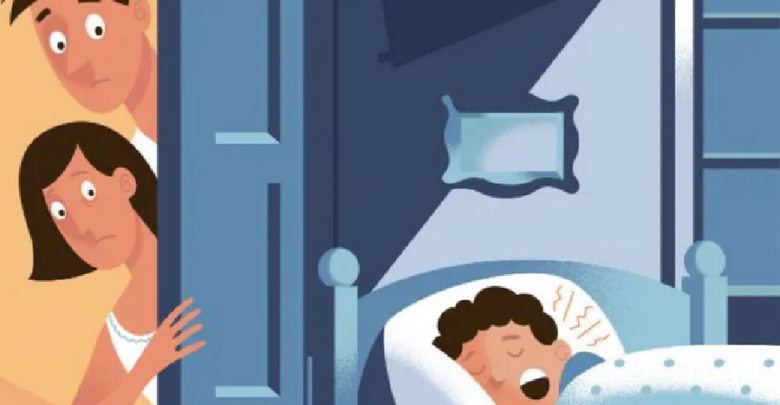Well-Known Sleep Disorders and How You Can Address Them

Adult humans need around 7 or more hours per night. For younger people, they need even more. If you don’t get enough sleep, it can wreak havoc on your physical (and even mental) health. But it’s not just getting enough sleep that matters. The quality of your sleep can affect your overall health as well. Things like sleep talking or snoring in children might sound amusing at first, but they can worsen gradually.
Many people take sleep for granted. How many hours of sleep do you get per day? A lot of young adults think they can go longer with less sleep because they have more energy. However, having less restful sleep can take a toll on your body over time. You might develop certain sleep disorders or exacerbate existing ones. That’s why you should address sleeping problems immediately before you encounter any more problems. You shouldn’t play a waiting game with your medical issues.
Did you know that sleeping issues can be an indicator of other, more serious conditions? There’s a big reason why some common sleep disorders (such as sleep apnea in Singapore) are treated by ENT doctors. The ENT region, short for ear, nose and throat region, is an area of your body that affects many of the major sensory organs of your body. When you can’t sleep, you can damage these sensitive parts of your head and neck. So what should you do to address them?
Sleep disorders to watch out for

Healthy diets and an active lifestyle can stave off most of the effects of certain medical conditions, but a lack of proper sleep will not save you from the effects of certain disorders. Are you aware of the most common sleep disorders and conditions? You should educate yourself.
Being able to identify when you have a sleep disorder is the first step to learning how you can combat them. But the first step is the hardest to do for many individuals. Why is that? It’s because people are unconscious when they sleep. They might not be aware they have sleeping problems until a partner or bedmate informs them. Nonetheless, there are a few warning signs to watch out for when you’re awake. Here are some common sleep disorders, some signs you need to watch out for, and what to do when you encounter them.
1) Sleep apnea.
Sleep apnea is also known as the condition wherein your breathing repeatedly stops and starts during sleep. Some might mistake it for simple snoring, but sleep apnea in Singapore is a potentially serious condition that can have lasting effects on your health. Sleep apnea is more than just snoring. When you have this condition, the soft tissues at the back of your throat can block your airways. Over time, your body fails to get enough oxygen circulating during sleep. It might lead to daytime exhaustion and even life-threatening problems such as high blood pressure and heart conditions.
If you suspect you have sleep apnea, contact a doctor right away. You can prevent sleep apnea by keeping yourself at a healthy weight. Obesity can thicken the tissues surrounding your throat muscles and cause sleep apnea.
2) Insomnia.
A person with insomnia will find it hard to go to sleep or stay asleep. There are many causes associated with insomnia, ranging from stress and other mental health disorders to physical illnesses. Most of the time, the disappearance of insomnia is linked to the treatment of the main cause. But if you can’t find the main cause of your insomnia, you might want to visit a sleep specialist. You might need medication or behavioural therapies that can help you relax. Other times, you might need complex treatments or a correction of longtime sleep habits that are detrimental to your sleep.
3) Snoring.
When you’re living alone, taking a snoring treatment in Singapore might even feel like a waste of money. Why is it so important to fix snoring? It might seem like a small problem, but it can be incredibly disruptive. You won’t be able to avoid sleeping with a partner at least a few times. Loud snoring can rouse other people who are sleeping with you. Snoring can also be indicative of obstructive sleep apnea. Snoring can also get worse with age.
If you snore, you should consider going to a sleep specialist or ENT doctor to take a closer look at your situation. People who are overweight or have underlying medical problems are more prone to snoring. An ENT doctor might be able to find the root cause of your snoring and help you eliminate them.
4) Narcolepsy.
The opposite of an insomniac is a person with narcolepsy. People who have narcolepsy are those who have trouble staying awake. They switch between states of wakefulness and sleep and cannot control their sleepiness. But when you suffer from narcolepsy, you might have disrupted sleep patterns, just like those with insomnia. People with narcolepsy might also have other sleep conditions that affect their quality of sleep. For example, sleep paralysis is common among those with narcolepsy because their brain does not properly wake up with the body. They might experience hallucinations and other unsavoury effects.
Like people who have sleep apneaand other sleep disorders, you need to reach out to qualified professionals to let you handle the problem. They might be able to prescribe drug therapies to help you deal with it. There might not be a cure for the condition, but modifying your lifestyle might be enough to help you.
Don’t just leave any medical issue left untreated! If you have problems regarding your ENT region, it’s time to call a reliable medical professional. Reach out to Dr Jenica Yong for ear wax removal and other services in Singapore that can provide relief for you.
